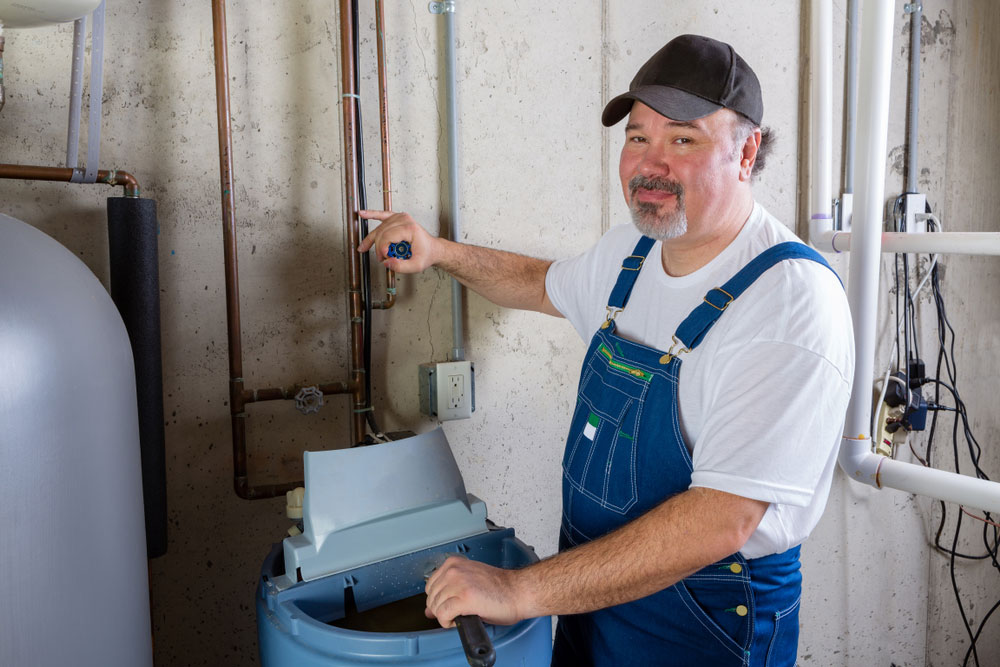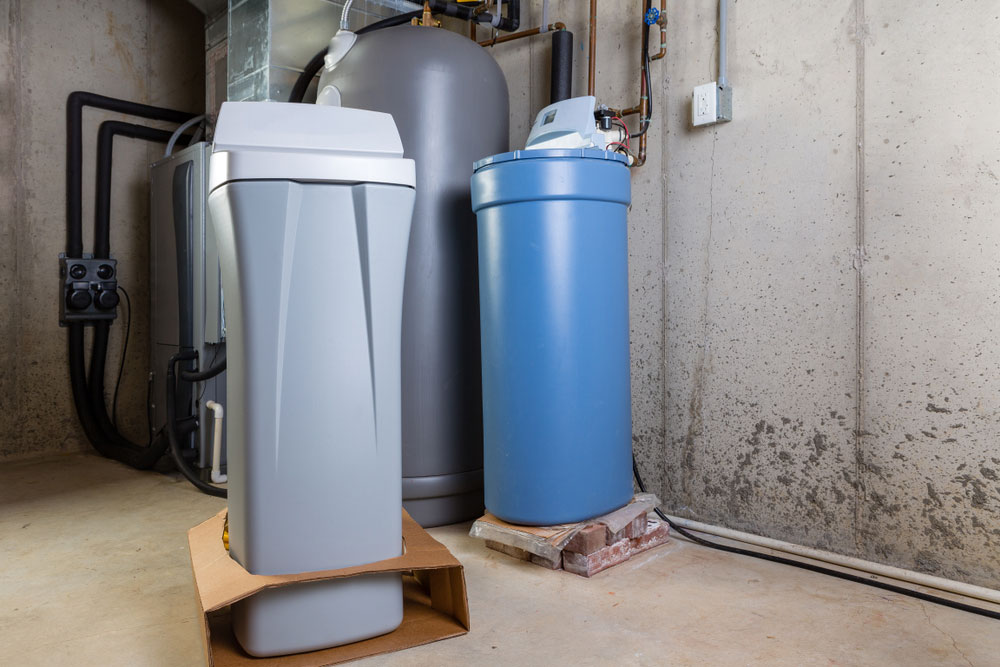Water Softener Installation Services

Water softeners remove excess levels of iron, calcium and other minerals from your home’s water supply. Although hard water isn’t a health hazard, it can be a nuisance due to the stains and mineral build-up it leaves behind in your sinks, tubs and showerheads.
Hard water is found in many homes, and it is more common in some parts of the country than others. Homes with well water supplies also run the risk of developing hard water due to sediment and mineral build-up in the well.
Signs of Hard Water
Most of the time, you can’t taste hard water. It’s not a health hazard, so you won’t experience any physical side-effects from drinking it. Instead, you’ll notice other signs of hard water that are hard to miss and a major inconvenience. Some of the most common signs are
- Brown or rust-colored stains on clothes.
- Fabrics losing their color after a wash, especially dull whites.
- Rust-like rings around sink and shower drains.
- Orange stains in tubs and toilet bowls.
- Brittle hair and dry skin.
- Spots on dishes even after thorough washing.
- Build-up of soap scum.
- Clogged pipes.
- Appliances are wearing out; your icemaker in your fridge may frequently be blocked, and your washing machine may become clogged.
While there are some simple ways you can manage the symptoms of hard water, including stain and odor removal, you won’t be able to stop stains and wear-out from occurring unless you remove the excessive minerals from your water.
Hard water is heavily in iron, magnesium and calcium. A softener or water purification system can remove the high levels of these minerals and leave you with cleaner, fresher water throughout your home.
How Does a Water Softener Work
All water is purified through a process called reverse osmosis. The system filters your untreated tap water through a device that removes solids (such as salt and iron) from the water supply. Some of the most common hard water contaminants removed during the reverse osmosis process include:
– Fluoride
– Chlorine
– Lead
– Pesticides and other harsh chemical cleaners
– Nitrates
– Sulfates
A water purification system or home water softener is installed by connecting the device to your main water line. A valve connects your pipes with the system, which uses water pressure to flush your water through its system before it enters your indoor plumbing.
Types of Water Softeners

There are four main types of softeners that you can buy, and each one poses its own benefits. Certain models are better suited for people with higher levels of contamination, including those whose hard water may contain levels of chemicals and compounds that affect taste and carry a smell.
Salt-free softeners use no sodium in the filtration process. They do not purify water, only change magnesium and calcium into different chemical compounds that do not turn into the hard water residue called “scale”. Scale deposits can erode your pipes, leading to leaks, bursts and reduced water flow.
Reverse osmosis softeners rely on pressure to get the job done, and they are the most common type of water softening system sold to homeowners. In addition, there are magnetic softeners, which use magnets to alter the water supply and draw out impurities through a magnetic field. The main drawback of this type of water filter is the fact that the field loses its strength within a two-day period.
Lastly, there are softeners that use ion exchange to filter and purify hard water. Ion exchange contains high levels of sodium, so it is better for softening water intended for appliances, not drinking sources.
Choosing the Right Water Softener For Your Needs
Doing an at-home water test is the best way to find out what contaminants are lurking in your tap water. Our team of water softener experts can also help you assess your home water supply and determine which type of water softener would be best for you.
It’s important to note that water softening systems are not purifiers; if you want to further improve the taste and quality of your home’s hard water drinking supply, you will have to install both a water softener and a purification system.
Contact us today to learn more about water softening solutions and to schedule your home water test.
